Last time we introduced the subject of film financing, the elements that go into drafting a budget and discussed the different ways a filmmaker can fund their film. In this post we’ll dive a little deeper and look at how these important factors are being implemented in the upcoming film The Storyteller.
The Storyteller, written by 20 Questions creator Joe Crump and co-written by 20 Questions writer Rachel Noll, was written with the intention of self-financing the production of film. This option gives the filmmaker the most control over a production but it also means that you must have an idea of the budget before and during the writing process. It also (obviously) means that you must save the money yourself. This fact can sometimes take you down a different path all together. Such was the case for director Joe Crump.
Back in 1986, I was working a commercial job as a Grip. During a break, I was sitting on the dolly with the assistant cameraman and we were discussing how much he’d made on his house that year. We were doing pretty well for ourselves at the time making about $65k per year working 100 days, but he had just made an $80k increase in equity on his house that year – more than either of us had made by working in the business.
That made me decide to buy a house – and then sell it and buy another. Since everyone had been turning down my scripts (12 features over about 8 years), I began to think I could make enough money to make my own damn movie . So I got a little sidetracked and started doing real estate investing.
It was fun and I’ve been doing it for more than 25 years and don’t have any plans to stop – I even write a blog about real estate – but I’m back to film now and I’m ready to spend some money on a low budget movie. - Joe Crump, writer & director of The Storyteller
Whether you’re filming a big Star Wars-style fantasy blockbuster or the smallest, all-set-in-one-room indie, every filmmaker struggles with their film’s budget. But rather than looking at your budget with a glass half empty attitude, look at it as an opportunity.
Question: how can you think outside of the box when you don’t even know the size of the box?
Your budget it the box! The smaller the box, might limit the tangible qualities of a film: locations, costumes, the number of actors, but it does NOT limit the emotional possibilities. Characters start in one place and they end in another. That journey is your story.
I think of it less as creative restraints and more as creative opportunity – because sometimes when you have less to work with, your creativity has to kick in double time… and the results of that can sometimes be far more beautiful, interesting, and unique than what you would have created with unlimited money. It also forges a certain unity of passion among the team – when you have a low budget, people are coming on to work with you because they love what you are doing, not for the paycheck. And this creates a family and a unity among the creative team that can truly create magic, in my opinion. - Rachel Noll, writer and producer of The Storyteller
Speaking of restraints used as a catalyst for creativity, there was actually a whole filmmaking movement in 1990s Denmark that sought to strip away all the fringes of big budget filmmaking. It was called the Dogma95. Read about it here. Some of the work that came out of this movement is truly inspired. Here’s a trailer to my personal favorite from the Dogma95 films starring NBC Hannibal’s own Mads Mikkelsen.
Audience expectation may also be related to the budget. Think about it. How often have you been surprised with a HUGE movie that has bad CGI? If a movie cost hundreds of millions of dollars to produce, the superhero better not look like something out of a Playstation game. Looking at you, Matrix Reloaded… And let’s not forget: The higher the budget, the harder it is for a movie to make it’s money back. Here’s a great article discussing how much money the new James Bond film SPECTRE will have to make, just to break even.
Going back to the case of The Storyteller, remember that even if you are funding the film yourself, forming an LLC protects you and your investment while aiding in the filmmaking process.
Our production company – “Dancing Spirit Productions, LLC” – is owned by my S Corporation, which handles my larger business. Doing it this way gives me some asset protection and limits my liability if anything were to go wrong during the production of the film. If you don’t have any assets to protect, you could do it without a corporation of any kind and just post the expenses on a schedule C on your personal 1040 tax form.
If the gods smile on us and the film makes money, the corporation I set up will also save us money on taxes, though for an LLC to be beneficial tax-wise, the film would have to make the production company a minimum of $75,000.
Another benefit of creating an LLC is that it gives you a bit of credibility with the other collaborators on the film and makes you look like a ‘going affair’ rather than a fly-by-night working out of your garage. On the other hand, if you have only $50 to spend on a movie – don’t worry about any of this stuff, just go out and shoot. If you don’t have much money, don’t waste the money you have setting up a corporate entity. It won’t benefit you at all. - Joe Crump, writer & director of The Storyteller
Often times filmmakers don’t (or can’t) limit themselves to one form of financing. A film can utilize pre-sales to bring down the amount that the filmmakers need to raise through the combination of self-finance, private equity and/or crowdfunding. It’s also important to note that different parts of the film can be financed using different methods. As an example, The Storyteller’s production will be self-financed, but the filmmakers are looking to utilize crowdfunding for their marketing. And there’s more to it than just dollars.
What’s great about crowdfunding is that along with potentially bringing some more money to the project, it also helps create and widen the audience for the film. You are directly engaging with people who will be involved and interested in the film’s progress. What we like about waiting until after the film is complete to do a campaign is that by then we can cut together a compelling trailer, do some interviews with our actors talking about the film and their experience on it – there is more for the potential backers to engage with. -Rachel Noll, writer and producer of The Storyteller
When it comes to filmmaking the story takes precedent. Budgets, and by proxy financing, give you access to tools to strengthen the aspects of your film that bring your story to life. But it all starts with the story. The Storyteller has taken this idea to heart and you should too. Join us next time when we delve into the world of casting – how to figure out who’s right for your film and how to find them.



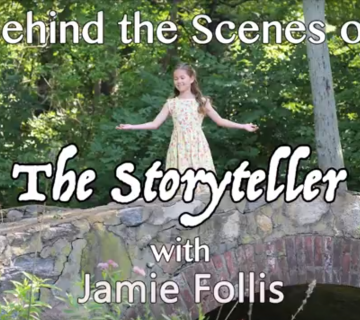
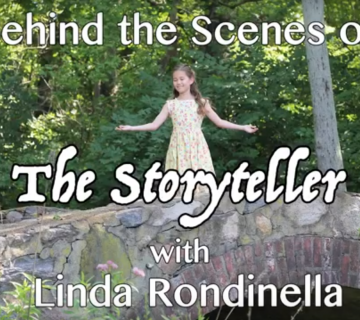
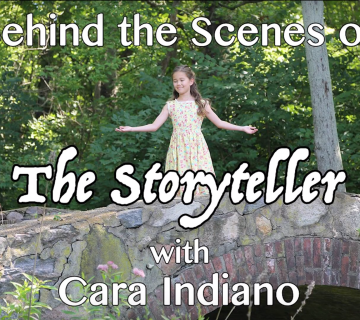
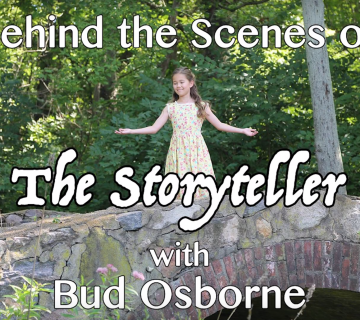
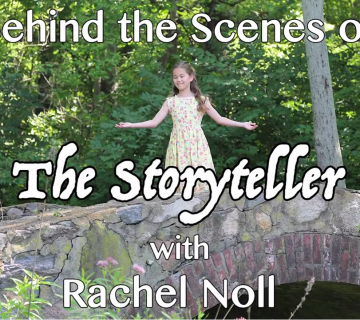
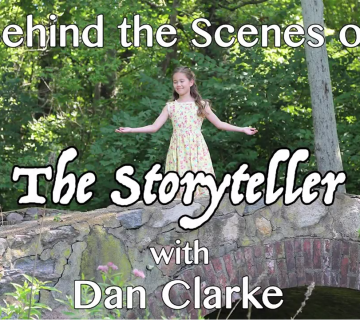

Join the Conversation →